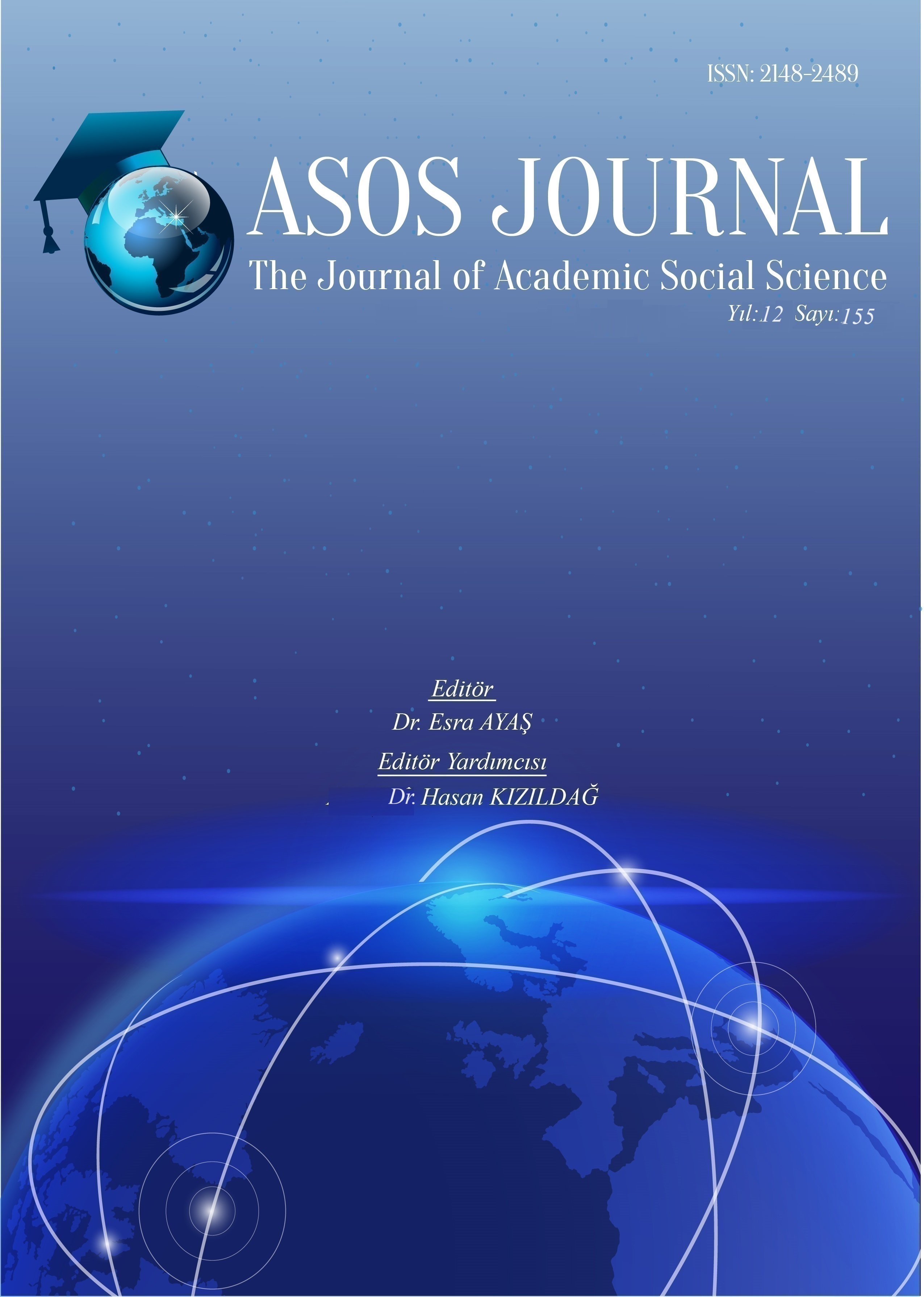Author :
Abstract
Bu araştırmanın amacı Aile Güçlendirme Ölçeğini Türkçeye uyarlamak, geçerlik ve güvenirlik çalışmasını yapmaktır. Araştırmanın örneklemini Bakırköy Ruh Sağlığı ve Hastalıkları Eğitim ve Araştırma Hastanesi (BRSHH) çocuk psikiyatri poliklinik ve kliniklerine başvuran, tedavisi ve takibi devam eden duygusal, davranışsal veya ruhsal bozuklukları olan çocukların ailelerinden araştırmaya gönüllü olarak katılmayı kabul ederek onam veren 515 anne baba oluşturmaktadır. Veriler “Demografik Bilgi Formu” ve “Aile Güçlendirme Ölçeği” kullanılarak yüz yüze görüşme yöntemiyle toplanmıştır. Yapı ve Dil geçerliliği ile güvenirliğine yönelik analizler yapılmıştır. Yapı geçerliği için AFA (Açımlayıcı Faktör Analizi), DFA (Doğrulayıcı Faktör Analizi) uygulanmış, kapsam geçerliği için Davis tekniği kullanılmıştır. Güvenirlik katsayıları Cronbach’s alfa değerleri ile incelenmiştir. Ölçeğin orijinal formu (Family Empowerment Scale), bir ailenin güçlenme durumunu iki boyutta ve 3 düzeyde ölçmek için tasarlanmış 34 maddelik 5’li Likert tipinde bir derecelendirme ölçeğidir. Türkçe formun geliştirilmesi için uygulanan örneklemden elde edilen bulguların analizi sonucunda ölçeğin 26 madde ve 6 faktörlü bir yapı sergilediği bulunmuştur. Ölçeğin bu 26 maddelik formunun Açımlayıcı Faktör Analizinde ise Keiser-Meyer-Olkin (KMO) örneklem uygunluk katsayısı .918, Bartlett Sphericity testi ise 325 serbestlik derecesinde χ2=5410.741 olarak anlamlı düzeyde (p<.01) bulunmuştur. Aile Güçlendirme Ölçeğinin 26 maddelik bu formunun 6 faktör altında, toplam yanıt varyansının % 60.478’ini açıkladığı saptanmıştır. Yapılan bu çalışmayla Türkçeye uyarlaması yapılan Aile Güçlendirme Ölçeğinin duygusal, davranışsal veya ruhsal bozuklukları olan çocuklara sahip ailelerde güçlenme düzeylerini ölçmek için geçerli ve güvenilir bir ölçme aracı olduğu sonucuna varılmıştır.
Keywords
Abstract
The purpose of this research is to adapt the Family Empowerment Scale into Turkish and to conduct validity and reliability studies. The sample of the study consisted of 515 parents of children with emotional, behavioral or mental disorders who applied to the child psychiatry outpatient clinics and clinics of Bakırköy Mental Health and Diseases Training and Research Hospital (BRSHH) and whose treatment and follow-up are ongoing, and who voluntarily agreed to participate in the research and gave their consent. Data were collected through face-to-face interviews using the Demographic Information Form and the Family Empowerment Scale. Analyses were conducted for structural and linguistic validity and reliability. EFA (Exploratory Factor Analysis) and CFA (Confirmatory Factor Analysis) were used for construct validity, and the Davis technique was used for content validity. Reliability coefficients were examined using Cronbach's alpha values. The original form of the scale (Family Empowerment Scale) is a 34-item, 5-point Likert-type rating scale designed to measure the empowerment status of a family in two dimensions and 3 levels. As a result of the analysis of the results obtained from the sample used to develop the Turkish form, it was found that the scale has a structure with 26 items and 6 factors. In the exploratory factor analysis of this 26-item form of the scale, the Keizer-Meyer-Olkin (KMO) sample fit coefficient was found to be .918 and the Bartlett sphericity test was found to be significant (p<.01) as χ2=5410.741 with 325 degrees of freedom. It was found that this 26-item form of the Family Strengthening Scale explained 60.478% of the total variance in responses under 6 factors. With this study, it was concluded that the Family Empowerment Scale, adapted into Turkish, is a valid and reliable measurement tool to measure the empowerment levels of families with children with emotional, behavioral, and mental health problems.
SUMMARY
Purpose: The purpose of this research is to adapt the Family Empowerment Scale into Turkish and to conduct validity and reliability studies.
Materials and Methods: The sample of the study consisted of 515 parents of children with emotional, behavioral or mental disorders who applied to the child psychiatry outpatient clinics and clinics of Bakırköy Mental Health and Diseases Training and Research Hospital (BRSHH) and whose treatment and follow-up are ongoing, and who voluntarily agreed to participate in the research and gave their consent. Data were collected through face-to-face interviews using the Demographic Information Form and the Family Empowerment Scale. Analyses were conducted for structural and linguistic validity and reliability. EFA (Exploratory Factor Analysis) and CFA (Confirmatory Factor Analysis) were used for construct validity, and the Davis technique was used for content validity. Reliability coefficients were examined using Cronbach's alpha values.
Results: The original form of the scale (Family Empowerment Scale) is a 34-item, 5-point Likert-type rating scale designed to measure the empowerment status of a family in two dimensions and 3 levels. As a result of the analysis of the results obtained from the sample used to develop the Turkish form, it was found that the scale has a structure with 26 items and 6 factors. In the exploratory factor analysis of this 26-item form of the scale, the Keizer-Meyer-Olkin (KMO) sample fit coefficient was found to be .918 and the Bartlett sphericity test was found to be significant (p<.01) as χ2=5410.741 with 325 degrees of freedom. It was found that this 26-item form of the Family Strengthening Scale explained 60.478% of the total variance in responses under 6 factors.
Conclusions: With this study, it was concluded that the Family Empowerment Scale, adapted into Turkish, is a valid and reliable measurement tool to measure the empowerment levels of families with children with emotional, behavioral, and mental health problems.





